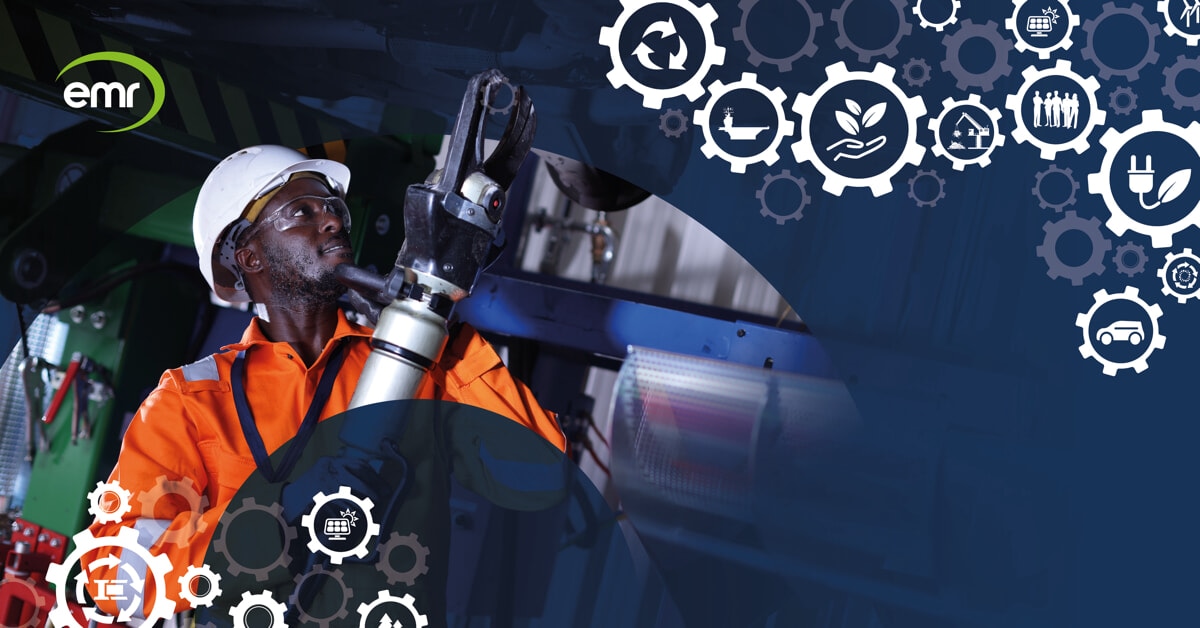CHOOSE
A DIFFERENT TERRITORY

When the time comes to recycle your vehicle, making sure that you choose a recycler in accordance with strict legislations is vital. By choosing an Authorised Treatment Facility (ATF) you can also ensure that your vehicle is destroyed in the most environmentally responsible way and is properly recorded with the DVLA, preventing you from being pursued for any future motoring offences or illegal disposal practices.
An Authorised Treatment facility is a recycler or vehicle dismantler that follows strict end-of-life vehicle (ELV) guidelines and regulations when dismantling or recycling vehicles. They are monitored by the Environmental Agency (EA) and can legally handle ELVs.
These guidelines are set by DEFRA (Department for Environmental, Food and Rural Affairs) and are split into four categories:
At EMR Metal Recycling, we offer the largest network of ATFs for end-of-life vehicles (ELVs) in the UK.
As a family business with decades of knowledge and experience in the metal recycling industry, we are committed to putting the environment first and preserving the planet for future generations. By recycling the material in vehicles and supplying it back to metal mills and manufacturers, EMR is contributing to a sustainable circular economy.
Over the past decade, we have invested over £350 million in technologies and partnerships which enable us to recycle up to 95% of any vehicle that EMR receives. By diverting as much material from landfill as possible, EMR teams ensure that they are used again, minimising the unsustainable use of raw materials.
We believe we all have a key role to play to help protect our planet for future generations. This includes reducing the environmental impact of our operations, diverting waste from landfill and maximising material recovery.
Throughout the ELV recycling process, environmental protection is our priority. At EMR, the depollution process of any vehicle is guided by stringent controls and checks to ensure that any fuels or liquids removed do not impact the environment, including entering the water supply.
Every EMR ATF correctly stores hazardous materials, substances, or vehicle parts in accordance with the EA and DEFRA standards.
Depolluting a vehicle requires many stages. Firstly, EMR teams will remove the vehicles battery to make the vehicle safe and deactivate or deploy all onboard safety features. We then remove all liquids in a vehicle – including any fuel, oils and even windscreen wash – ensuring that all are responsibly recycled. Finally, our teams remove the wheels, tyres and catalytic converters, all of which would impact the environment if they went straight to landfill.
Batteries – which can be particularly hazardous – are separated into different types. Lead acid and lithium-ion batteries are placed in acid-resistant, leak-proof containers and kept undercover to ensure that they are not exposed to any elements, which may cause fires and leaks.
In addition to our industry-leading environmental protection procedures, EMR also prides itself on delivering excellent service. When you have decided that you want to recycle your vehicle, the first thing you must do is inform the DVLA that it has been taken off the road and recycled at an ATF.
A Certificate of Destruction is produced for any passenger vehicle, light goods vehicle under 3.5 tonnes and three-wheeled vehicles (although the DVLA must register all vehicles due for recycling). At EMR, we take care of this and share the certificate with you upon the sale of your vehicle, this not only saves you time, but also ensures that all lawful obligations are met.
As with any ATF, EMR is regularly inspected by the Environmental Agency to ensure that our processes adhere to both the End-of-Life Vehicles Regulations 2010 and the European ELV Directive. This gives you the confidence that – not only are your vehicles being recycled in a sustainable and lawful way – but that we’re doing everything to the highest possible standard.
It’s illegal for anyone to accept a car for disposal if they are not an ATF. This is due to the hazardous materials within the vehicle that could impact the safety of the environment.
If your trader cannot generate a Certificate of Destruction, the DVLA could pursue you for issues relating to the car, including motoring offences and illegal disposal practices.
For a comprehensive list of ATFs, you can access the government’s authorised treatment facilities public register list.
So, if you’re looking to recycle your vehicle – and earn money for doing it – choose one of EMR’s nationwide network of ATFs today.